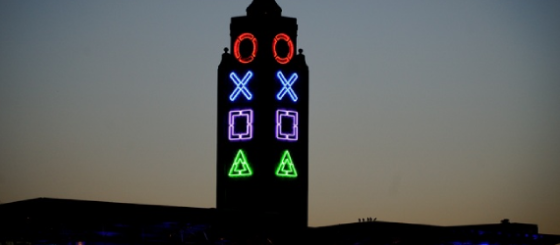Video game stores have for some years faced the dilemma of how to diversify their offering to stay afloat in a market evolving to become primarily a digital one. Since the launch of the “next generation of consoles” back in 2006, digital downloadable games have been available through the marketplaces of Microsoft, Sony & Nintendo on their respective consoles. However, initially, the list of games available to download was quite limited which benefited retailers as it would not take away business from them.
Fast forward to 2013 and the next generation of consoles were released. The release of these new consoles brought a brand new, more reliable system in place to download full video games over the internet. The ability to download full games happened on the previous generation however, numerous factors attributed to its rather low popularity as it did not have the stability and the large selection of games as it does on the console’s successor.
GAME’s game-changing new direction
The PS4 & Xbox One were game-changers in driving interest in digital games. This meant retailers had to diversify their offerings to provide more than just consoles and video games. For example, GAME is now selling Gaming PCs and a lot more accessories for all gaming platforms. On top of this, they provide access in-store to the Belong Arenas which are equipped with all of the latest consoles and gaming PCs with room for around 6 people to game. GAME is a prime example of a company successfully diversifying its business model to become a more experienced/service-based company. This is due to the nature of the video game market and its continuous push towards the all-digital era.
The new direction GAME is taking features a better value proposition. Martyn Gibbs, Chief Executive Officer recently described BELONG, the Group’s esports and experience-based gaming proposition as “core to our transformation strategy and we continue to expand the business through the opening of larger BELONG gaming arenas while improving our GAME Retail offer to fully capitalise on the strong growth potential in the esports market.” (Waller-Davies, 2018)
This has proven to be successful in driving footfall to their stores with the gaming arenas as proven by the positive recent trading results.
COVID’s accelerating impact on digital transformation
Clearly, a huge impact on the video game retail industry as with all retail was the dramatic impact of COVID. Not solely due to the fact stores were closed, more so due to the change in lifestyle, most people had to adapt to. Logan Plant from IGN described COVID-19 as “not an instigator for the rise of digital media, but simply an accelerator of a trend we’ve seen take shape throughout the last console generation.” (Plant, 2021). Working from home became the norm for 1+ years and subsequently, a lot of businesses had to change how they operated to take advantage of the customers/consumers being stuck at home.
The impact of COVID was a record-breaking year for digital sales of video games. Sony also revealed that nearly 63 per cent of its “full game” sales for the 2020 calendar year came via digital downloads rather than games sold on discs at retail.
As a result of COVID’s accelerating impact, it is important to reevaluate the current proposition and business direction of video games retailers. The current moves console developers are making into the all-digital era are having a dramatic impact on the performance of bricks and mortar retailers. A significant development happened in 2020 when the latest consoles were released (PS5 & Xbox Series X). These new consoles were released with a cheaper variant; a disk tray-free model with a cheaper price tag available from launch. This highlights the increasing dominance of the digital era and the ongoing decline of physical sales.
Owen Good from Polygon described it in stark terms: “The implication is clear: Video game fans, stuck at home, with the ability to make one-click purchases for entertainment to pass time, will do so in amounts up to the price of a full game.” (Good, 2020)
As an avid Gamer myself who has been a loyal customer of GAME since I could remember my weekends used to involve regular trips to pick up a new game or the latest console at the time. Interacting and talking with knowledgeable staff members was a huge part of the experience.
Embracing an experience-centric playbook
Despite knowledgeable in-store staff that can assist and support the customer journey, the gaming industry has changed to be a primarily digital one. However, despite this reality, there’s still a significant percentage of customers purchasing physical copies of video games. Yet the online giants such as Amazon have further eroded this market, offering next day delivery on the same selection of physical video games that high street retailers offer at a discounted price.
The same situation is happening with Gamestop, in an article covering which companies would Amazon effect, it stated Gamestop “historically has made its money by serving as the middleman, but the game publishing industry’s move toward downloads and away from discs and cartridges is increasingly making the venue less of a destination for gamers.” (Brumley, 2019).
This of course reduces the need to pop into town and purchase a game. Additionally, on top of the physical video game competitors, each of the gaming platforms also have their own store integrated into the console where you can purchase digital copies of any game on that platform. Digital games usually have a higher RRP, however, they are usually heavily discounted during sales.
In conclusion, it’s clear to see that for retail stores to drive more footfall they need to reposition themselves and expand what they offer as a business. GAME have taken this in their stride and expanded their traditional offering of physical Video Games and Consoles to offer an immersive customer experience including VR, the opportunity to play video games with your friends in the Belong arenas, purchase fully built gaming PC’s along with the necessary accessories and gaming merchandise such as POP Vinyls or plushies. It has been proven that GAME’s new direction has driven footfall and has been profitable for them too. In order to win in the future and remain relevant, it’s time for video games retailers to embrace an ‘experience-centric’ playbook.
References
- Plant, L. (2021). Why Digital Games Could Totally Dominate Physical Formats In Just a Few Years – IGN. Retrieved 16 December 2021, from https://www.ign.com/articles/why-digital-sales-could-totally-dominate-physical-formats-in-just-a-few-years
- Waller-Davies, B. (2018). Game full-year losses shrink but sales remain flat. Retrieved 16 December 2021, from https://www.retail-week.com/entertainment/game-full-year-losses-shrink-but-sales-remain-flat/7030354.article?authent=1
- Good, O. (2020). COVID-19 pandemic turns console gamers to digital sales in record numbers. Retrieved 16 December 2021, from https://www.polygon.com/2020/8/11/21363951/video-game-sales-digital-online-xbox-one-ps4-publisher-figures-ea-activision-2k-games
- Brumley, J. (2019). Retrieved 16 December 2021, from https://www.kiplinger.com/slideshow/investing/t052-s001-43-companies-amazon-amzn-could-destroy/index.html




